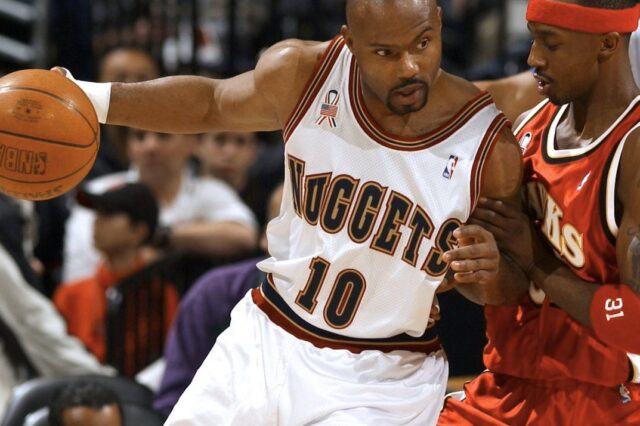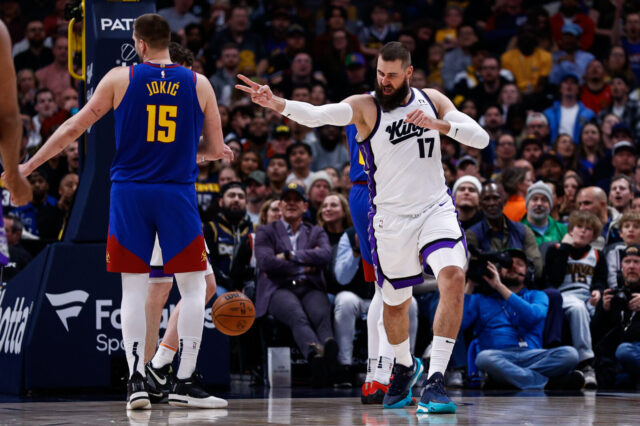Sick of hearing about coronavirus? Me too. I consider quitting social media every single morning after I sleepily grab for my phone, rub my eyes, and find six notifications waiting for me from paranoid friends sharing the latest death tolls. My wife, who works for a local healthcare system, recently learned that people are actually stealing masks from hospitals—despite the fact that practically every infectious disease organization and expert on Earth has said repeatedly that masks are ineffective for the general public. I’m at the store last week and see two people loading their SUV with as much bottled water as they can cram in. (To whoever needs to hear this: water will not be shut off if you get quarantined.)
So, yeah, I’ve been a bit skeptical—cynical, even—throughout this scare, the latest in a long line of infectious disease panics that seem to happen every two years like clockwork. We are told every time: “But this one’s different,” and then three months later everyone is back to worrying about Malone’s rotations. That’s been my headspace since first learning about this from a hyper-alert friend in December, and I didn’t see any reason to change my mind even as the outbreaks in Italy and Iran upped the media coverage.
And then I got sick.
No worries—I’m fine. It was a cold, most likely. I did have a low-grade fever for a couple of days and a lingering cough for like a week, though, and I still feel a bit foggy (forgive me if my writing is a bit scattered today). So I definitely could have coronavirus; the vast majority of people who get it have either no symptoms or a relatively mild reaction akin to a bad cold. My wife works at hospitals, and I’ve attended some large gatherings over the last several weeks, so who knows?
Regardless, it has me thinking about my responsibilities as a citizen. On one of my sickest days, I had to run out briefly. I probably shouldn’t have, but I did. And I felt guilty the whole time. I was careful not to touch my face or get too close to anyone. I warned several people that I was “under the weather” so they would keep their distance. And I didn’t touch anything in the store that I wasn’t carrying out with me. But I am still left to wonder: Could I have left a little crowned microbe sitting on a counter that someone later picked up and gave to their 85-year-old grandmother?
Could I have left a little crowned microbe sitting on a counter that someone later picked up and gave to their 85-year-old grandmother?
Now, if that’s how I felt—a coronavirus skeptic who still thinks it’s very likely that this will all blow over without a catastrophic impact on human life a la the Spanish Influenza—then how should public figures, like commissioners of sports leagues, handle their responsibility to keep communities as safe as is reasonably within their control?
Here are four things the NBA, in particular, needs to at least consider doing sooner rather than later.
Make all games available everywhere for free
Nuggets fans are understandably sensitive to the idea of the NBA banning spectators from games. My initial reaction was the same as LeBron James’: “Huh? Screw that.” But the reality is that no government official or health agency wants to be the one to let an outbreak happen on their watch. We can debate what response is factually warranted in this case, but that’s just the way it is.
With the majority of Denver households still unable to legally watch the broadcast, the NBA has a responsibility to make the game more accessible to us, and the rest of NBA fans, who are going to have greatly restricted access to live games—or who just want to stay away from crowds. It doesn’t matter to me what the contracts stipulate or how much money the NBA would lose. In times of public concern, responsible organizations can work that out. It’s a drop in an ocean of money that these people are floating on—it’s the least they could do.
Continue to pay stadium employees
There’s a theme developing here: owners need to eat some money in the name of public safety. This burden needs to be put onto the billionaires, not the fans and low-wage workers. And so far, at least, it doesn’t appear that the owners are taking their responsibilities seriously:
There are likely to be more and more games played without fans as state governments crack down on public gatherings. Instead of forcing low-income employees to take the hit by not paying hourly wages, what if the Kroenkes of the world scrounged up some pocket change to continue paying those who will be hit hardest by the lack of income. In the midst of panic and suffering, adding an economic weight onto those who may already be hanging by a thread is more than irresponsible—it’s immoral.
Test every player before they are cleared to play
I don’t know how feasible this is at the moment since there are limited tests available. But man do these guys get bodily fluids all over the place when they play. One infected NBA player could spread this thing around the league so quickly that any decisions about whether to include spectators at games will become totally moot. Testing every player the morning before a game or once a week could keep the players—and fans—much safer.
Again, if it’s an issue of money—too bad. Fork it over, Fat Cats.
Postpone the season
When I first heard this suggested, I shrugged it off. But I want to give a sincere shoutout to my friend and colleague, Gordon Gross, who pushed back on this topic and got me thinking about how much even one human life is worth. Is it worth $100,000? A million dollars? Is it worth inconveniencing a population of people? Is it worth watching a basketball game a few months later than you were expecting?
It’s a difficult problem.
Cars kill people every day. An estimated 38,800 people were killed driving just in the U.S. last year. So should we ban driving? Is the freedom to own a car worth nearly 40,000 lives per year? Or, more on point, millions of people around the world get the flu and other highly contagious viruses each year, hundreds of thousands of whom die from the resulting complications. Should we quarantine whole communities each flu season to save a few hundred lives? Is having a thriving economy and the freedom to spread germs worth 10 or 20 or 30 thousands lives?
I have no idea how to go about answering these questions. My instinct is to say: “Yeah, those are big total numbers, but the percentages of risk are very small. That’s where the focus should be.” Then again, tell that to the family who loses a small child to coronavirus after taking her to her first Nuggets’ game.
Trust me—I get the counterarguments here. I’ve been making them for weeks. We can’t live our lives in perpetual fear of what might or might not happen. If we actually thought about every possible risk to our health and safety every morning as we sleepily grab for our phones to check our notifications, we would never get out of bed. So where’s the balance?
I have no idea.
But maybe in this case—with this virus that seems to have a long incubation period and is probably more deadly than the common flu—maybe delaying the season a couple of months, trying out a new summer playoff schedule, letting teams rest up and prepare for a unique end to a fascinating NBA season—is worth it.
Maybe it’s worth it even if only one life is spared.
Maybe it’s worth it even if all it does is make high-risk people—people like Gordon, or like my sister who is pregnant with twins, or like my grandparents who are in their 80s, or like whoever you know who could be more severely impacted—sleep a little better knowing that their community is taking their health seriously, too.
Maybe a basketball game isn’t worth all that much in the end.


